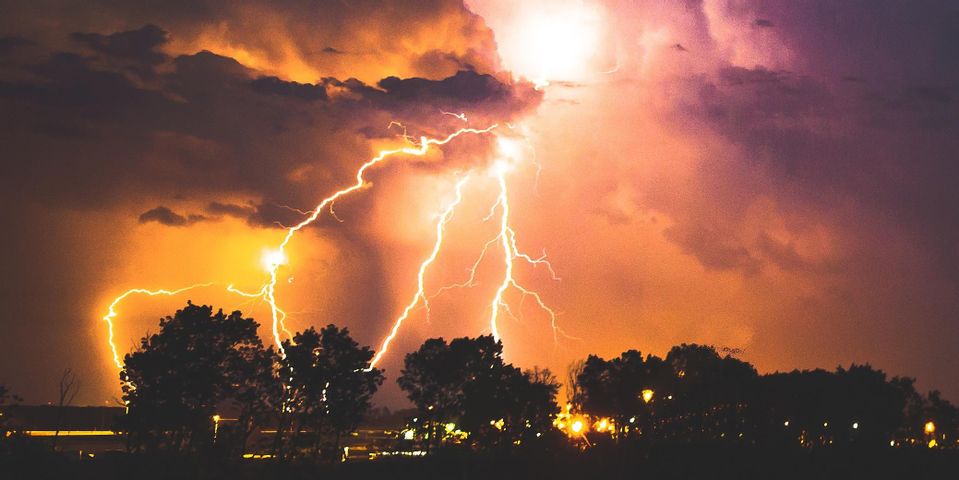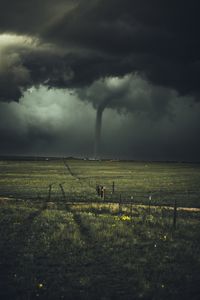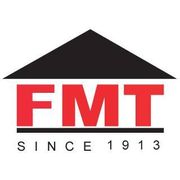
Natural disasters can wreak havoc on your home without warning, but the right precautions—like homeowners insurance—can assure that you’re prepared when they come your way. Whether it’s a disaster preparedness plan or additions to your property to avoid them in the first place, here’s how to handle five common weather-related incidents.
How to Prepare for Different Disasters
1. Floods
Flood coverage doesn’t come with your standard homeowners insurance policy, so if you live in an area that has a high risk of them, you will need to invest in flood insurance. To assure that you’re ready beyond your coverage, store your important personal documents in a waterproof case, and invest in flooring alternatives to carpeting, which flooding commonly ruins.
If this type of disaster is imminent, you will need to get to higher ground immediately. Before you leave, roll up rugs and move furniture, electronics, and other valuables to a more elevated location in your house. Take any pets with you, or if you can’t take them, leave adequate food and fresh water for them and place them on a safer, higher floor. If the water blocks the road you need to take, do not proceed. Even six inches of rain can sweep your car away.
2. Tornadoes
 Tornadoes can occur abruptly, which is why it’s essential to have a plan prepared beforehand. An ideal place to hide in your house is in a basement or storm cellar. If you have neither in your home, choose an interior room with no windows on the lowest level of your home. Have a weather radio ready with fresh batteries in your storm room so you can stay updated about the storm as it’s happening.
Tornadoes can occur abruptly, which is why it’s essential to have a plan prepared beforehand. An ideal place to hide in your house is in a basement or storm cellar. If you have neither in your home, choose an interior room with no windows on the lowest level of your home. Have a weather radio ready with fresh batteries in your storm room so you can stay updated about the storm as it’s happening.
If you live in a mobile home, even if it’s tied down, get out and seek another shelter—even if it’s outside in a ditch. If you’re in a car, get out immediately and find shelter nearby in a ditch or residence. No matter where you’re weathering the storm, assume the tornado safety position by curling up in a ball facing the ground and put your hands behind your head.
3. Fires
A lightning bolt can be as hot as 50,000 degrees Fahrenheit and reaches the ground at up to 90,000 miles per second. When your house is up against that force of nature, odds are you’re going to lose that battle. If you live in an area that is prone to thunderstorms, you might need to invest in a lightning rod, a tall metal pole that attracts and directs lightning safely to the ground. Maintaining all trees around your house is also a huge concern with this frequent severe weather.
When a thunderstorm hits, make sure to remain indoors. If you’re stuck outside, try to stay as low to the ground as possible—lightning will strike the tallest object in its area. If your house does catch fire from a lightning strike, get out immediately and alert the authorities. While homeowners insurance will have you covered, some things are irreplaceable: have an escape plan ready for your family when a fire happens.
4. Hail
While brief, hailstorms can cause significant damage if you’re not prepared. Before hail season hits (March to October), check on the condition of your roof. Are shingles missing? Is the roof around 10 years old? If either of these questions is true, have a roofing specialist visit for a second opinion and to do repairs or a replacement if necessary. Your homeowners insurance will have coverage with a deductible to cover these costs. Hail can also severely damage your car; avoid this issue by parking it in a covered space, like a garage.
5. Landslides
Landslides can occur anywhere in the country that has even minor changes in altitude. They happen quickly and are the result of a variety of natural and manmade factors. The best way to prepare for this natural disaster is vast preparation beforehand. Precautions you can take depend on your area’s potential risk, but they include:
- Following proper land-use procedures. Get a ground assessment of your property before building, and avoid building on steep slopes, mountain edges, and along natural erosion valleys.
- Consulting a professional about necessary precautions, like flexible pipe fittings to resist breakage.
- Planting ground cover on slopes.
- Building retaining walls and mudflow channels.
- Discussing flood insurance in addition to your homeowners insurance policy with your agent.
- Staying alert of changes to your property, like new cracks in your house’s foundation or driveway, excessively leaning trees, underground utility line breakage, and other shifts in the landscape.
If you’re ever near a landslide, move to higher ground away from the path of the debris as quickly as possible, preferably not on foot. Avoid all river valley and lower altitude areas.
By following these suggestions, you may be able to avoid damages that could result in a large insurance claim. For more information on protecting your property, get in touch with the team at Farmers Mutual of Tennessee. Since 1913, they have provided quality insurance coverage at an affordable price to residents throughout the state of Tennessee. Their local independent agent will be happy to help you find the right coverage for your home, mobile home, rental dwelling, or farm at a price that suits your budget. Give Farmers Mutual of Tennessee a call today at (800) 824-9555, and visit them online for more information.
About the Business
Have a question? Ask the experts!
Send your question

